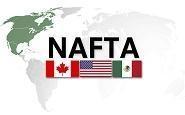Government/Policy

February 26, 2018
NAFTA: Rules-of-Origin Negotiator Called Back to Washington
Written by Sandy Williams
NAFTA negotiators began round seven of talks in Mexico City on Sunday. The contentious rules-of-origin proposal was scheduled for three days of discussion but Jason Bernstein, the USTR’s chief negotiator on the issue, reportedly was called back to Washington after just one day.
U.S. Trade Representative Robert Lighthizer required Bernstein’s attendance at a “consultation” meeting between the USTR and Detroit auto representatives. The recall was met with consternation since auto industry representatives were scheduled to attend the Mexico City talks.
U.S. automakers have opposed the rule-of-origins proposal by the USTR and have tried to stress the success NAFTA has achieved for the industry.
“The timing is unconventional but we’ve been telling USTR to meet with industry for months now and if that’s the reason he’s been recalled to Washington, I couldn’t think of a better reason,” one industry source told Inside U.S. Trade.
It is unclear what the USTR is hoping to achieve by these “consultations.” Inside U.S.Trade sources suggest Lighthizer may be hoping for White House support on a particular proposal or may be trying to push the talks to closure during the next round. Winding up NAFTA negotiations in Washington would allow Trump to claim a victory, suggested one source.
The interruption to the discussions in Mexico City may mean an intersessional round will be scheduled to revisit the topic before the eighth round of negotiations convenes in Washington in early April.
Round seven is scheduled from Feb. 25 through March 5.







